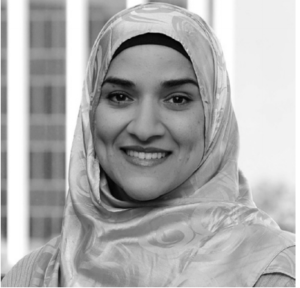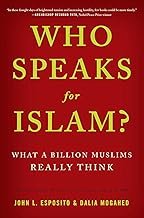Dalia Mogahed: A Thought Leader in Muslim Empowerment

Dalia Mogahed is a renowned researcher, author, and advocate for Muslim representation in public discourse. As a leading voice on issues related to Islamophobia, Muslim identity, and policy research, she has played a crucial role in shaping narratives about Muslims in the West. Through her work in media, research institutions, and government advisory roles, Mogahed has provided data-driven insights that challenge misconceptions and promote a more accurate understanding of Muslim communities. Her contributions have not only empowered Muslims but also fostered meaningful dialogue between diverse groups worldwide.
Early life and Inspiration
Dalia Mogahed was born in Egypt and later immigrated to the United States with her family. Growing up in a culturally rich and diverse environment, she developed a deep appreciation for both her Islamic heritage and the values of her adopted homeland. Her parents instilled in her a strong sense of faith, intellectual curiosity, and a commitment to community service. She pursued her higher education at the University of Wisconsin, where she earned a degree in chemical engineering. However, her passion for social research and policy led her to a career focused on Muslim identity.
Championing Muslim Representation
Dalia Mogahed has dedicated her career to advancing research and advocacy on Muslim identity, Islamophobia, and policy reform. As the Director of Research at the Institute for Social Policy and Understanding (ISPU), she has led groundbreaking studies that provide data-driven insights into the lives of American Muslims, shaping public discourse and policy recommendations.
Key contributions of her work include:
- Policy Influence: Mogahed served as an advisor to former U.S. President Barack Obama, becoming the first Muslim woman to hold such a role in the White House. Her expertise helped shape discussions on religious inclusion and countering harmful stereotypes.
- Media Presence: Through TED Talks, major news interviews, and public speaking engagements, she has consistently challenged misconceptions about Islam and Muslims, advocating for accurate representation.
- Authorship and Research: Co-authoring Who Speaks for Islam? with John Esposito, Mogahed has provided an evidence-based perspective on global Muslim communities, dispelling myths and offering nuanced insights.
Impact and Recognition
- Thought Leadership: Her research and public advocacy have established her as a trusted authority on Muslim issues in the West.
- Institutional Change: Through her work, she has influenced policymakers, journalists, and academics to adopt more informed and inclusive approaches to discussions on Islam.
- Global Reach: Mogahed’s contributions have resonated across diverse communities, inspiring dialogue on religious inclusion.

Lessons and Teachings
Dalia Mogahed’s work is rooted in the principles of empowerment, representation, and informed discourse. Key lessons from her advocacy include:
- Empowering Muslim Voices: Mogahed stresses the importance of self-representation, urging Muslims to take ownership of their narratives and actively engage in public discourse.
- Challenging Islamophobia with Data: She advocates for fact-based storytelling, using research to counter misinformation and stereotypes about Muslim communities.
- Redefining Leadership: Through her speeches and writings, she highlights the crucial role of Muslim women in leadership, pushing for greater representation in policy, media, and academia.
Legacy and Impact
Dalia Mogahed’s legacy is defined by her ability to reshape public perceptions of Muslims through research, advocacy, and media engagement. By providing data-driven insights, she has challenged misconceptions and fostered a more nuanced understanding of Muslim communities in the West.
Beyond policy and activism, Mogahed’s impact extends to media representation, where she has paved the way for more accurate and respectful portrayals of Muslims. Her efforts have not only transformed conversations around Islam but have also empowered individuals to claim their space in research, leadership, and public engagement.
Significant Moments
- TED Talk on Muslim Identity: One of Mogahed’s most impactful speeches, her TED Talk challenged misconceptions about Muslim women and emphasized the importance of self-representation.
- Advising the White House: Her appointment as an advisor to former U.S. President Barack Obama was a historic moment, making her the first Muslim woman to hold such a role in shaping policy discussions on Islam and Muslim communities.
- Media Influence: Through interviews with major news outlets, including CNN and BBC, Mogahed has consistently countered Islamophobic narratives and provided data-driven insights on Muslim experiences.
Conclusion
Dalia Mogahed’s work exemplifies the power of research and advocacy in shaping public perceptions of Islam and Muslim communities. Through her efforts in promoting understanding, inclusion, and data-driven insights, she has challenged misconceptions and fostered meaningful dialogue. Her contributions remain vital in today’s world, where representation and informed discussions are more important than ever. By engaging with her work and supporting initiatives that promote inclusivity, readers can contribute to a more informed and compassionate society.
Her Instragram



